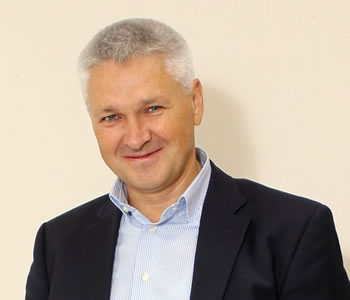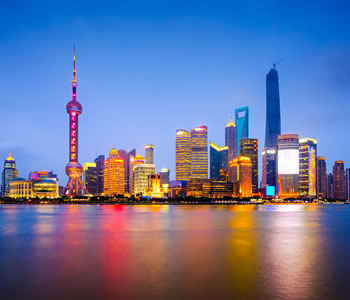Russia produces around 60–70 mt of solid municipal waste annually. This goes for paper and cardboard, polymers (with a share of 7–15% according to the Ministry of Natural Resources and Environment), glass, textiles and clothing, leather and rubber, ferrous and non-ferrous metals, and batteries. Being suitable for recycling, most of the waste (over 90%) is still landfilled.
The Kuchino landfill, which the residents of Balashikha just outside Moscow complained of to President Vladimir Putin during his Direct Line call-in session in June, became a symbol of Russia's waste problem. The giant site of 50 hectares was closed and that only emphasised the problem’s scale, as the site rubbish (according to various estimates, up to 90% of the Moscow waste) was redistributed to other landfills, many of which are currently overloaded. According to the authorities, a workable solution means intensifying the development of a system to recycle waste into new products or energy.
Ban as a motivator
In late July 2017, the government's Order No. 1589-r approved a list of materials and production waste with useful components, prohibiting them from being buried in the future. Pursuant to the Federal Law On Production and Consumption Waste, any failure to comply or improper compliance with these regulations will entail disciplinary, administrative, criminal or civil liability, including dismissal and the imposition of fines.
The list of 182 items includes ferrous and non-ferrous scrap metals; books, newspapers and other paper products right up to labels; various electronics and household appliances; car tyres and glass containers. It also comprises polymer products such as polyethylene and polypropylene packaging, films made of polystyrene, polyacrylates, polyethylene terephthalate, etc. According to Sergei Donskoi, Head of the Ministry of Natural Resources and Environment, in his Vedomosti interview, such measures aim to give impetus to recycling. He believes these restrictions will enhance the extended environmental responsibility of producers for recycling products, a scheme introduced before.
Being suitable for recycling, most of the waste (over 90%) is still landfilled in Russia.
Amendments to Law No. 89 On Production and Consumption Waste introduce obligations of producers and importers to recycle their product waste. There are four options available for businesses. The first one is to set up their own process of waste treatment and recycling, including that for packaging. The second one is to enter into an agreement with any contractor providing such services. The third option is to pass the matter over to an industry association. And the fourth one is to pay environmental charges imposed by the government. All the proceeds from such environmental charges are planned to be used for the implementation of regional waste management programmes. The list of products and packaging subject to recycling was approved by Government Order No. 1886-r in September 2015.
Government initiatives aim to give impetus to waste recycling.
Billions to collect
The authorities have started collecting environmental charges in 2017. Before that, businesses enjoyed zero rates. According to the Ministry of Natural Resources and Environment forecast, they expected to raise RUB 6 bn in charges. However, reality turned out to be quite different. In late June, during the State Duma's Government Hour with Sergei Donskoi as the speaker, Olga Timofeeva, Chairman of the State Duma Committee on Ecology and Environmental Protection, claimed the failure of the charges collection and the target reduction to RUB 1 bn. "These were supposed to be subsidies for the regions to carry out waste management programmes," stressed the lawmaker.
The failure is due to low readiness of the required by-laws, experts say. For instance, according to Lyubov Melanevskaya, Executive Director of RusPEC, many Russian companies failed to identify themselves as environmental charge payers as per the classification stipulated by the relevant government order and therefore were not covered by the regulatory system. Importers have faced other difficulties as customs declarations are now required to be completed only with codes of imported products and no information on their packaging type, let alone weight. All this is a hindrance to the payment of environmental charges.
Importers face difficulties: customs declarations do not include information on packaging type and weight.
"I believe that the low collection of environmental charges is due to the poor wording of some by-laws. This made many companies unable to prepare their reports correctly and on time," says Denis Kondratyev, Director of the Supervisory Board of the League of Waste Paper Recyclers. In his view, that sounds more like a problem for businesses than for the government. “A failure to pay will be followed by fines with missed payments still to be made in subsequent periods," says the expert.
The authorities have started collecting environmental charges in 2017. Before that, businesses enjoyed zero rates.
The Ministry of Natural Resources and Environment is now looking to expand the list of products and packaging subject to recycling. "I am afraid this could only worsen the situation. The way out is definitely through further refinement of the laws and regulations,” says Lyubov Melanevskaya. Such work is already in progress with contribution from industry institutions and the business community. According to experts' forecasts, the legislation will see some transformations over the next three years.
However, the law also stipulates alternatives to the payment of charges, including in-house waste recycling and cooperation with third-party recyclers. There are reasonable grounds for the companies to consider these options. First, they enable them to control their waste disposal budgets. Secondly, green projects are good for the companies’ corporate image. Thirdly, all this brings new market opportunities.
That is how it often works in foreign markets. For instance, thanks to its eXchange programme, Bosch has become a leading supplier of industrial remanufactured spare parts for vehicles. That is great for the customers as the products are 25% cheaper on average and also for the company as it offers new services acting as an environmentally responsible business. Bosch experts disassemble parts for the single components at the beginning of the recovery process, and then carry out their treatment. All spare parts that are subjected to wear are replaced by new parts, and other components are carefully checked. This leads to saving both materials and energy. Remanufacturing helps Bosch to reduce СО2 emissions by more than 25,000 tpa. To make it happen, the company had to set up the processes of recycling and used spare parts (feedstock) collection.
Bosch’s display at the Moscow Exhibition of Automotive Parts, Components, Car Maintenance Equipment and Products.
On one's own
in Germany, the waste management reform began 40 years ago and comprised many different solutions, including the development of separate waste collection practices.
According to Vsevolod Abramov, First Deputy Chairman of the Board at the Association of Plastics Processors, in Western countries, this does not take great efforts. For instance, in Germany, the waste management reform began 40 years ago and comprised many different solutions, including the development of separate waste collection practices. Russia is just at the beginning of the road. It is the poor development of the "front line", i.e. waste collection and initial sorting, that is the key bottleneck for the companies willing to do recycling on their own. They have to invest not only in recycling but also in preparatory activities.
That is exactly what Baltika Breweries put in place. Alongside other industry players, the company now implements a project for separate collection of packaging waste in 22 cities across Russia. As part of the project, 2.9 thousand containers were placed for plastic, glass, aluminium cans and cardboard waste to be further recycled. According to the company’s representatives, Baltika faced lack of interest and support on the part of some local authorities while implementing its environmental project. That was the reason behind the difficulties in assigning sites for waste containers in some locations. "Overall, to enjoy an effective separate waste collection system, we need not only sound legislation and elaborate by-laws, but also well-developed incentives for organisations, which transfer waste to processing plants, along with efficient public education efforts and approved municipal programmes for the development of separate waste collection“ said Yuriy Chentyrev, Regional Production Director at Baltika Breweries.
22 Russian cities set up containers for separate collection of plastic, glass, aluminium cans and cardboard waste.
Similar problems will most likely constrain the implementation of the government order which prohibits materials and production waste with useful components from being landfilled. The document clearly lists various types of waste subject to recycling, but most of the items are marked as required to be uncontaminated (that relates, for instance, to polyethylene and polypropylene containers). This means that waste needs to undergo initial sorting and treatment to become subject to the landfill prohibition. However, the restriction may well be lifted in the future.
Yet there is another problem. "Many companies are reluctant to address the extended responsibility principle on their own (without payment of environmental charges) due to concerns that in-house waste recycling may not be recognised by the government authorities as a result of the weak regulatory environment. Amendments that could fix this have already been developed. However, their adoption is being postponed and there is a risk that the changes will take effect only in the next three-year period starting after the end of 2017,” says Lyubov Melanevskaya, Executive Director of RusPEC.
This means that 2017 has given a start to the preparation of the waste management reform rather than kicking off its roll-out. It is true through that no great work can be done without preparation.
Download PDF










